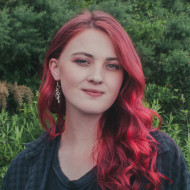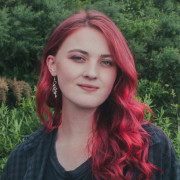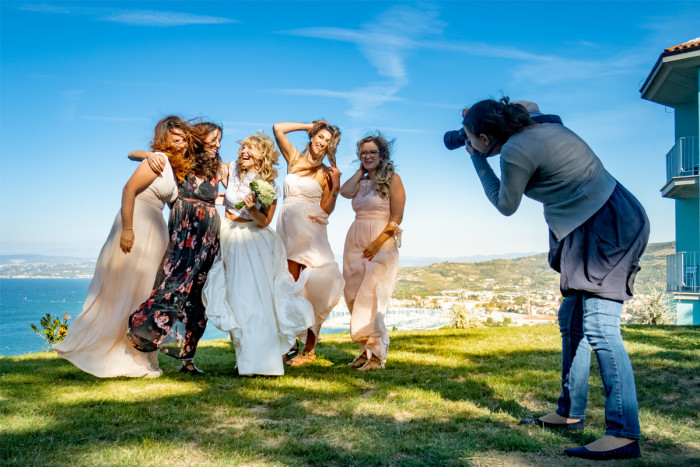Photographer
Kaitango Whakaahua
Alternative titles for this job
Photographers take photographs of people, places, products or events.
Pay
Photographers who work for others usually earn
$24-$35 per hour
Self-employed photographers can earn
$50-$250 per hour
Source: Woolf Photography, 2020.
Job opportunities
Pay
Pay for photographers varies depending on experience, how often they work and the type of photography.
- Photographers in training can expect to earn minimum wage.
- Photographers with two to three years' experience usually earn between $25 and $30 an hour.
- Self-employed photographers can earn $50 to $250 an hour.
Many photographers are self-employed and their income depends on the success of their business.
Source: Woolf Photography, 2020.
- PAYE.net.nz website – use this calculator to convert pay and salary information
- Employment New Zealand website - information about minimum wage rates
(This information is a guide only. Find out more about the sources of our pay information)
What you will do
Photographers may do some or all of the following:
- use digital camera and lighting equipment
- work out ideas for photo shoots
- arrange cameras, lights, locations, props and models
- digitally process and edit photos for print or web
- manage and market their own businesses
- plan, produce and edit video footage.
Skills and knowledge
Photographers need to have knowledge of:
- cameras, flashes, lenses and computers
- how to control light and achieve different photographic effects
- how to process digital images and use software such as Photoshop and Lightroom
- latest photographic methods, equipment and trends.
Self-employed photographers also need small business and marketing skills, and an understanding of relevant legislation.
Working conditions
Photographers:
- usually work regular business hours, and may work long, irregular hours, including evenings and weekends
- work in studios, offices and outdoors in various locations
- travel locally, nationally or internationally to photograph locations.
What's the job really like?

Melany Barrington
Photographer
Photography felt right straight away
“From the moment my lecturer handed me a camera and asked me to take photos of our leadership course to put on social media, I knew photography was for me”, says photographer Melany Barrington.
Her lecturer taught her photography techniques and theory before she went out on her own.
“I started photographing the music scene, which has always been my passion. And then my work got picked up by music media publications.”
Develop a unique style
Melany also found work as a contract graduation photographer with a photography business.
“I was told my portfolio stood out. If you have a unique style, and you put energy and passion into your photographs, you’ll be given opportunities,” she says. “And I’ve since been given lots of responsibilities with the company such as taking photographs of weddings and family events.”
Broaden your photography skills and set goals
“You have to be adaptable, and willing to learn. I’d thought wedding photography wasn’t my thing – the long days and huge number of photos to take – but I’ve loved capturing peoples’ special day.
“To get your work noticed it helps to set goals. It could be exhibiting your work in a gallery, doing collaborative work or shows with other photographers or even just upgrading your camera gear.”
Entry requirements
There are no specific entry requirements to become a photographer as you gain skills on the job. However, a relevant tertiary qualification such as a Bachelor of Fine Arts may be useful.
Some employers prefer to train new photographers themselves. They may also support them to work towards a photography qualification.
Secondary education
There are no specific secondary education requirements to become a photographer, but useful subjects include visual arts, art history, digital technologies and design and visual communication..
Personal requirements
Photographers need to be:
- good communicators and able to make people feel relaxed and at ease
- patient and organised
- able to work well under pressure
- accurate, with an eye for detail
- confident and motivated
- creative and artistic
- practical and technically skilled
- good at solving problems
- good at networking to establish a customer base.
Moving past creative blocks can be the hardest part, so you need to find ways to be inspired and stay motivated. For me it’s usually a walk through my favourite park or by the ocean.

Melany Barrington
Photographer
Useful experience
Useful experience for photographers includes:
- amateur photography, including darkroom experience
- art experience
- experience with photography editing software.
Find out more about training
- NZ Institute of Professional Photography
- info@nzipp.org.nz - www.nzipp.org.nz
- Photographic Society of New Zealand
- www.photography.org.nz
What are the chances of getting a job?
Range of ways to increase chances of getting work
Opportunities are good for experienced photographers with a good reputation and a range of clients but average for new photographers as there is high competition for vacancies.
However, most photographers work part time, and supplement their income with other work.
You can increase your chances of getting a job if you:
- have a creative portfolio
- market yourself well
- can produce innovative work by experimenting with digital photography techniques
- have good knowledge of computer software packages like Lightroom and Photoshop
- specialise in a particular area of photography such as medical photography, engagements, weddings, births or journalism
- belong to and network with members of a professional body such as the New Zealand Institute of Professional Photography (NZIPP) or the Photographic Society of NZ.
According to the Census, 2,244 photographers worked in New Zealand in 2018.
Most photographers self-employed
Most photographers are freelancers. Some photographers work as employees for established photographic companies while selling their own work on commission and gaining business skills.
Photographers may also work for:
- photographic agencies
- news agencies
- newspaper and magazine publishers
- shops that offer photo processing
- tertiary institutions that require photography teachers
- hospitals and the police.
Sources
- Ministry of Business, Innovation and Employment, 'Occupation Outlook, Photographers', accessed November 2020.
- Stats NZ, '2018 Census Data', 2019.
- Woolf, S, business owner and photographer, Woolf Photography, careers.govt.nz interview, October 2020.
(This information is a guide only. Find out more about the sources of our job opportunities information)
Progression and specialisations
Photographers may progress to set up their own photography business, or move between different areas of photography with further training.
Photographers may specialise in a particular area of photography, such as:
- advertising, food, fashion and editorial
- artistic – producing photographic artworks
- corporate and commercial
- press, sports photography and photojournalism
- medical photography
- social, including weddings and portraits
- stills photography in the film industry
- photographic styling
- photographic retouching.
Last updated 25 March 2025

